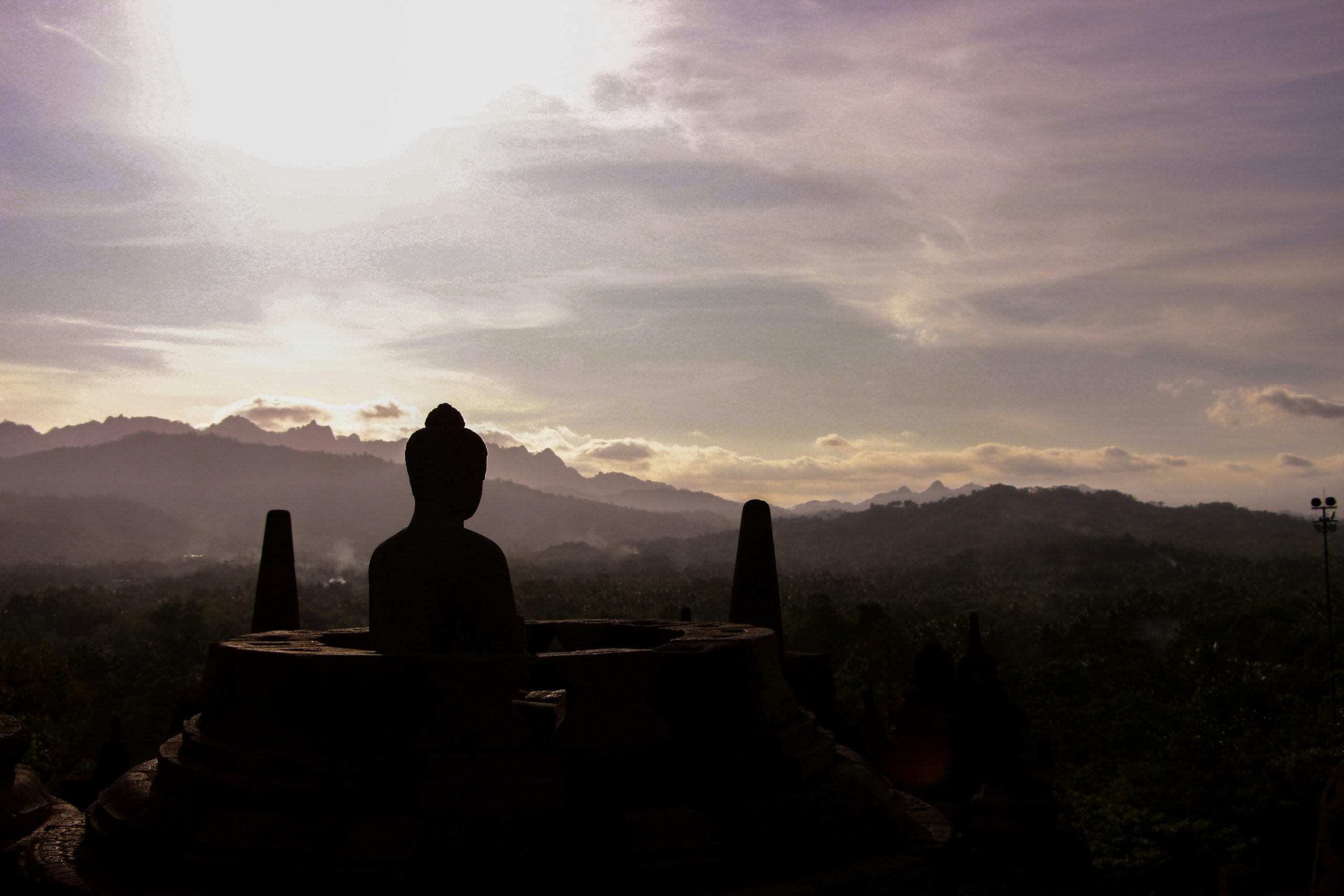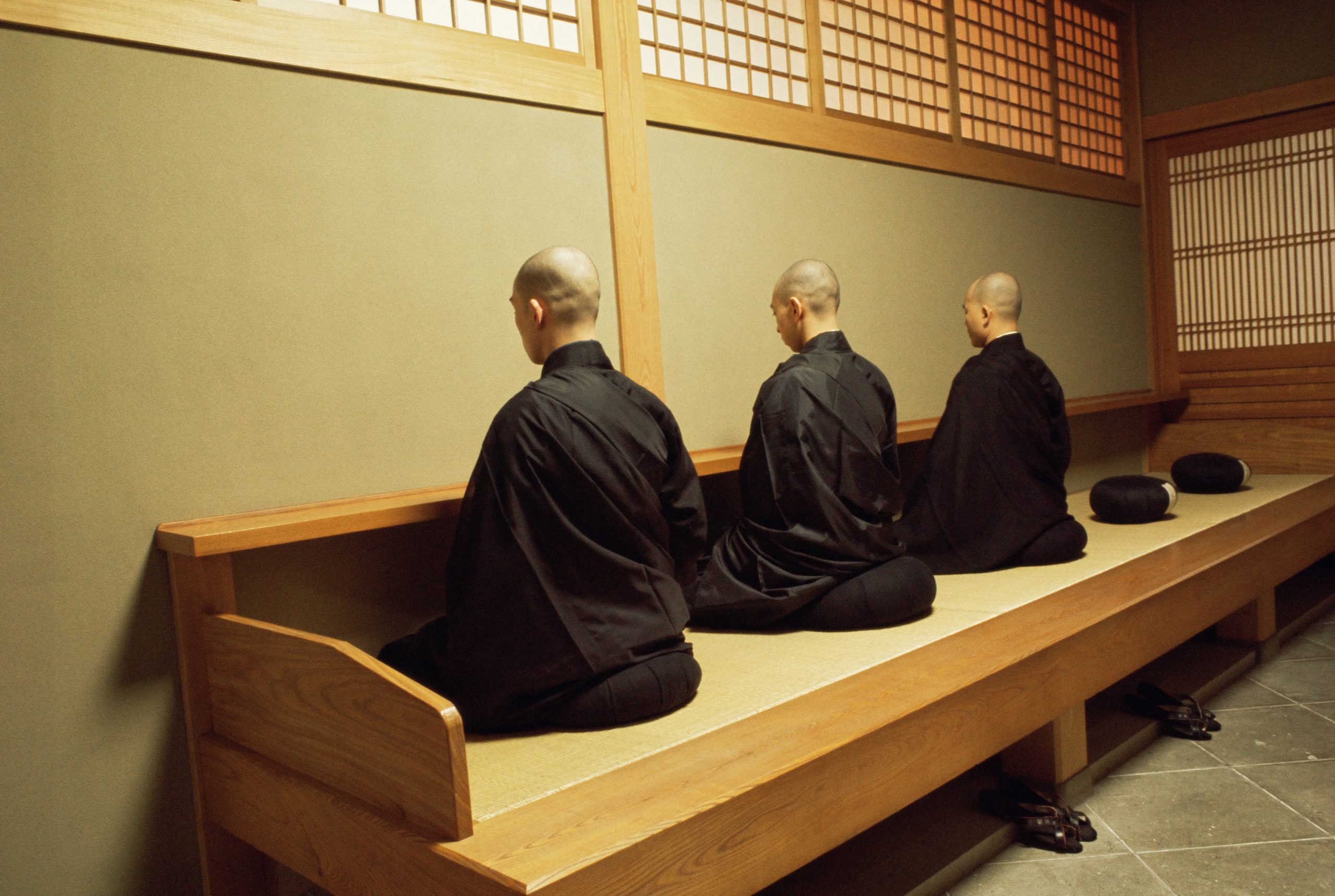The Trainings of the Three Types of Persons
The resident teacher at the Tibetan Buddhist Learning Center gives a timeless teaching on developing the perfections and generating compassion. The post The Trainings of the Three Types of Persons appeared first on Tricycle: The Buddhist Review.

Geshe Yeshe Thabkhe is among the last generation of scholars to be trained in Tibet before the Chinese occupation. He has been teaching Westerners for decades, having worked with top scholars in the United States, and is the current resident teacher at the Tibetan Buddhist Learning Center in Franklin Township, New Jersey. The following teaching, from Geshe Thabkhe’s commentary on the Rice Seedling Sutra, presents the Buddha’s profound teachings on the laws of karma and dependent arising within the context of developing the perfections.
Essential Teachings for the Beginning: The Teachings on Higher Birth
Regarding what practices are necessary to engage in at the outset, the crucial teachings that the Blessed One gave to his disciples are as follows: the cause that brings suffering to you and others, in this life and in futures lives, by producing a very miserable rebirth as a hell being, hungry ghost, or an animal is the ten nonvirtuous deeds—killing, stealing, and so on. Therefore the Buddha advised that you must abstain from these. The perfect cause that results in rebirth in the high states of humans and gods is ethical discipline of abstaining from the ten nonvirtuous deeds and the cultivation of the ten virtuous deeds that are their opposite—protecting life, generosity, and so forth. Therefore the Buddha said that you must practice these. The Perfect Renunciation Sutra states:
In the beginning, the blessed buddhas teach generosity, the teaching of ethical discipline, the teaching of the high states of humans and gods . . .
Nāgārjuna’s Precious Garland (5.38) states:
From generosity comes wealth, from ethical discipline happiness,
from patience beauty, from virtuous effort brilliance,
from meditative stabilization peace, and from wisdom liberation.
From compassion all aims are achieved.
In this way, the Buddha’s disciples properly practiced the teachings leading to higher birth from the outset. Without mixing your physical, verbal, and mental activities with harm to others, you must become able to naturally strive at the ten virtuous deeds that benefit others.
Essential Teachings for the Middle: The Teachings on the Definite Goodness of Liberation
When those disciples firmly establish a basis of ethical discipline that abandons nonvirtuous deeds, become free from the obscurations of ill deeds, and automatically make virtuous effort with enthusiasm, they see that they are able to avoid birth into miserable realms in their future lives and to obtain the high state of a happy rebirth among humans and gods. Although they are able to attain this, it is not a permanent freedom from miserable rebirths. Moreover, the higher birth of humans and gods does not transcend the nature of suffering. Therefore their minds turn toward liberation, thinking, “Am I able to liberate myself from suffering completely and forever?” When this happens they become the fortunate disciples of the foremost teaching, the teaching of the four noble truths. The Perfect Renunciation Sutra states:
When the blessed ones see a joyful mind, a satisfied mind, a mind that is free of obscurations, that dwells in good fortune and has an ability to comprehend their explanations of the foremost teaching, then the buddhas, the blessed ones, will explain the foremost teaching. What is the foremost teaching that they explain in detail? It is the four noble truths: true sufferings, true origins, true cessations, and true paths.
Essential Teachings for the End: The Teachings on the Highest Definite Goodness of Omniscience
The method of attaining the highest definite goodness of omniscience is as follows: when, in the beginning, you train your mind in the paths of the persons of beginning and middle capacities as stated above, you consider, through the twelve factors of dependent arising, how one enters cyclic existence and how one ends cyclic existence, and through this, generate the attitude of the determination to be free from cyclic existence and the uncontrived mind that desires liberation from it. Likewise, when training your mind in the path of the person of greatest capacity, you contemplate how other beings, like yourself, enter into cyclic existence through the twelve factors of dependent arising and how they end cyclic existence. From this contemplation, you understand your own and others’ births in cyclic existence as being beginningless and without number.
Then you comprehend that over the course of previous lives, all other living beings have been your dear parents, like your dear parents of this lifetime. Recognizing all beings as your mother, you recall that when acting as your mother, they were so kind, just like your mother of this lifetime. You then wish to repay their kindness, just as you do your mother of this lifetime. Becoming repeatedly accustomed to these three ways of thinking, you come to have the love that feels affection for all other living beings, just as you would your own mother of this life.
Furthermore, you think over, repeatedly, how you are equal to others in wanting happiness and not wanting suffering; how problematic it has been that, from beginningless time up to now, you have held on to the idea of cherishing yourself and have engaged in ways of thinking that neglect other living beings; and how beneficial it is that the buddhas and bodhisattvas, for the sake of others, disregard themselves and cherish others as they would themselves. Becoming accustomed to these thoughts, you produce the attitude of exchanging self and other by forgetting about yourself as you usually forget about others and by cherishing others as you cherish yourself.
After you have, in this way, become endowed with a loving mind for all beings, you contemplate how these beings enter cyclic existence through the twelve factors of dependent arising and how they could reverse that process. Once you do this, just as you cannot bear being tormented by the sufferings of cyclic existence in this way, so you cannot endure others being tormented in this way. You then produce the great compassion that wants to free them from their suffering. Then you generate the spirit of enlightenment that wants to attain the high state of a buddha, who has eliminated all faults and completed all good qualities stemming from eliminating what is to be eliminated and realizing all that is to be realized, for the sake of your being able to free all living beings from their suffering. In order to do this you must practice the six perfections—the deeds of the bodhisattvas, who are the heirs of the buddhas—for eons. This is the teaching for the person of great capacity, the teaching you must train in at the end.
♦
© 2020 Geshe Yeshe Thabkhe, The Rice Seedling Sutra: Buddha’s Teachings on Dependent Arising. Reprinted by arrangement with Wisdom Publications.
![]()
Thank you for subscribing to Tricycle! As a nonprofit, we depend on readers like you to keep Buddhist teachings and practices widely available.

 UsenB
UsenB 































